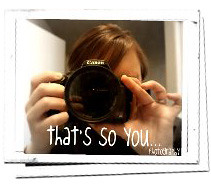(Once again I find myself inspired by something discovered on accident while looking for something else.
Apparently, Tami Cowden, a romance author, and her partners (I'm not sure in what) got together and wrote a book that catalogues and discusses sixteen character archetypes (eight female, eight male) in fictional works. Here I'm going to present you with a survey of the archetypes along with a few of my thoughts.)EDIT: After some interesting comments, and a note from Ms. Cowden, I've made a few changes below. If you want those changes to reflect on the facebook quiz, you'll have to take it again.
What is Strength? When you read a book, do you require "Strong Characters" of the author? Do you shut a movie off halfway through, simply because the heroine seems dull, or spineless? What is your definition of dull? Is it the same as mine?As I've begun writing, I've found myself justifying these characters both to you and to myself. It is my hypothesis that any of these types can be considered "Strong" characters, but they must be mature ones, written by mature authors.Too often nowadays, we find ourselves faced with ONE right answer. ONE party, ONE lifestyle, ONE ideal.
Good authors can challenge those assumptions, but poor ones seem to ratify them.
Let's begin:
Ladies First:The BossThe Boss is a bold, authoritative, and goal-oriented woman. In difficult situations, she jumps in and takes charge, ordering surrounding characters into action, demanding respect, and bowing to no one.
Not surprisingly,
Cowden sites Cate
Blanchett's Elizabeth, and Katherine Hepburn's
Eleanor of Aquitaine in The Lion in Winter as Bosses. Think of, "
I even made poor Louis take me on Crusade. How's that for blasphemy. I dressed my maids as Amazons and rode bare-breasted halfway to Damascus. Louis had a seizure and I damn near died of windburn... but the troops were dazzled." And,
" I could peel you like a pear, and God, himself, would call it justice. "I love these women to the point of heroine-worship, but (maybe it's just me) there seems to be a bit of pressure on all women to be like this. After all, doesn't The Boss sound like the
ultimate Feminist dream? Here's what
I wonder: Are we
told to be tough, strong-willed fighters, or does the suggestion come from our own sense of inadequacy?
Though "Strong" is probably the first word that comes to mind when defining these ladies, I tend to enjoy them in their vulnerable moments. They become
relatable, yes, but most of the attraction lies in the fact that they are growing, stepping outside themselves.
The Seductress (formerly "Survivor")This lady is referred to as "mysterious and manipulative." Often dealing with trust issues, she is constantly on the defense, looking for ways to stay ahead. She's intelligent, but hides behind femininity and charm. She's always got a back-up plan.
According to
Cowden, the iconic Survivor is
Scarlett O'Hara (Gone with the Wind). My bias here is that I just really don't like Scarlett, with her selfishness and schemes. Still, one could argue that she's a product of her situations: "
As God is my witness they're not going to lick me. I'm going to live through this and when it's all over, I'll never be hungry again. No, nor any of my folk. If I have to lie, steal, cheat or kill, as God is my witness, I'll never be hungry again."
Still, I have enjoyed reading about Survivors. One of my all time favorites is the title character in
Mara, Daughter of the Nile. Mara is redeemable (in my point of view) because she is heroic. She begins by playing both sides in her little spy game, but eventually realizes that she believes one side is "Right" and risks her life for that belief.
Scarlett just ends up making herself (and everyone else) miserable, but Mara
matures and becomes more.
The Spunky KidInstead of the Boss, this girl's the team player. She holds her own, but is often in a supporting role. She's got lots of friends, is probably a bit of a "tomboy," and has a great sense of humor.
Cowden's examples include the heroines of Sleepless in Seattle and The Mary Tyler More Show.
My immediate thought is J.K. Rowling's
Ginny Weasley. She's lively and witty, but got the cute little sister rap for
five books. "
"Ginny, don't call Ron a prat, you're not the captain of this team—" "Well, you seemed too busy to call him a prat and I thought someone
should.""
Ginny's spunk makes her a fun (and even enviable) character. People like me wish we could speak our thoughts with such ease. Again, I find her most interesting when she is doing something different
—Serious, instead of funny. In these moments she proves that spunk can be steel if need be.
The Free SpiritThe Free Spirit is characterized by her whimsical nature. She doesn't feel dictated to or confined by society because she does her own thing. Think inside the box? What box! She's all about the journey, self-expression, and tends to have a rosy world-view. Still, this can get her into trouble when she tries to "help" others, becoming a bit too meddlesome. She doesn't really think ahead, but why worry?
Try Goldie
Hawn in
HouseSitter: "
I just wanted to see what it would be like to live in that picture. " or Amy Adams in Enchanted: "
Giselle: Now if only I can find a place to rest my head for the night. Robert: What kind of place? Giselle: I don't know. Maybe a nearby meadow or a hollow tree. " Some also cite Jane Austen's
Emma Woodhouse, "
Silly things do cease to be silly if they are done by sensible people in an impudent way. "
These women can be annoying, but what about Jerry
Spinelli's Stargirl:
“I’m not my name. My name is something I wear, like a shirt. It gets worn. I outgrow it, I change it.” or "I root for everybody
!“With the whimsy comes a sincere kindness that can be viewed as strength. These women dare to be different.
The WaifHere's a character that makes Feminists grind their teeth! The classic pure innocent, she always needs to be rescued. Often insecure, instead of taking action, her strength is found in endurance. Still, while wielding a sword would be her last option, that doesn't mean she wouldn't be good at it.
Waifs are probably the most difficult to write for a modern audience. Immature Waifs (like
Mia Thermopolis from The Princess Diaries, and
Bella Swan from Twilight) have been found annoying (though Mia tends to get off the hook by constantly whining about how she
should be like Hilary Clinton,
Beyoncé, and other good role models).
Sucessful Waif characters seem to need an excuse for their status of inactivity, such as a cultural concern.
Two of Cowden's examples, the title characters of Sabrina and Jane Eyre, are at a distinct social and financial disadvantage. In addition, Jane fell for her employer in a time where women had little to now power, so that complicates things further.
Yet I find Jane Eyre to be
quite heroic. Maybe you wanted her to tell Mr. Rochester to go to Hell, but Jane did what I would have done in her situation. She waited for him to say his piece and then calmly told him she could not, would not, stay and stole away in the night. She endures hunger and
homlessness, on her own terms, in favor of comfort and love on terms she could never consider without
degredation.
"Gentle reader, may you never feel what I then felt...May you never appeal to Heaven in prayers so hopeless and so agonized as in that hour left my lips; for never may you, like me, dread to be the instrument of evil to what you wholly love."If that's not strength, I don't know what is.
(Still, do you think a modern audience would stand for a
modern woman acting in such a way without an "excuse" like Jane's?)
(
EDIT: Apparently the article I read was from an early draft. Cowden now sites Jane Eyre as a LIBRARIAN. Need another example of a Waif? Try Judy Garland in The Wizard of Oz)
The LibrarianShe's orderly, controlled, and
knows she's intelligent (even if no one else does). She's stubborn and self-reliant, taking care of herself with her brains, not her looks. Often practical to the point of impatience, The Librarian knows what is proper, and will generally make sure everyone else does too.
Yes, you guessed it,
Cowden named this Archetype after
Marion the Librarian from The Music Man.
"As long as the Madison Public Library was entrusted
To me for the purpose of improving River City's cultural level,
I can't help my concern that the Ladies of River City
Keep ignoring all my council and advice. "
One of my favorite Librarians, of course, is
Hermione Granger.
"You're saying it wrong," Harry heard Hermione snap. "It's Wing-gar-dium Levi-o-sa, and make the 'gar' nice and long."A know-it-all can be annoying, but don't we love watching them grow out of their
frosty exterior?
The CrusaderThe Crusader lives for her Mission (whatever that may be) so if you stand in her way, be prepared to face the consequences. Not afraid to get her hands dirty, you will find her in the thick of things. She's stubborn and feisty, and
never takes a vacation.
Most
Comicbook heroines are Crusaders, along with
Buffy, the Vampire Slayer, and (probably the most famous Crusader)
Princess Leia, "
I don't know who you are or where you've come from, but from now on you'll do as I
say. "
Crusaders, like Bosses, are wonderfully intimidating. One needs them for their passion and direction, but
no one is ever as committed as they are.
The NurturerThe Nurturer isn't necessarily a homemaker. She cheerfully takes care of EVERYONE. A happy ending isn't good enough unless it applies to her family and friends as well. With her composure and patient ear she will listen to, and generally solve,
everyone's problems. With loyalty to the point of stubbornness, she'll protect those she cares about. When others are with her, they're in good hands, and they might just get cookies!
Examples of Nurturers include the helping, healing
Vianne Rocher in the book
Chocolat and
Mary Poppins:
"Practically perfect people never permit sentiment to muddle their thinking."While often losing themselves by becoming too entrenched in the problems of others, no one can deny that Nurturers are strong. Imagine a mama bear, fiercely protecting her cubs. Perhaps it was a Nurturer screaming, "
Not my daughter, you b****!" as she jumped into the fray, weapon drawn. These are the moments we look forward to, when the Nurturer's calmness gives way to her need to protect.
In conclusion, I find that what makes a character interesting and inspiring (to
me) is not necessarily strength, but maturity. Maturity, in my opinion, being the ability to step outside ones comfort zone, and do something necessary, but hard. If a character is always mouthing off, perhaps she will learn to stop and think, if she is quiet and unassuming, perhaps she will learn to stick up for herself. We look for these changes, and we rejoice in them, because than we now have something for which to admire the heroines.
Well, that turned out completely different from how I had anticipated, but I have some questions for you followers (and hopefully
blogstalkers :)
Can you guess which Archetypes I identify with the most? (Hint: They're the ones I spent the most time justifying,
lol)
Can you guess which Archetypes I identify with the least?
What Archetype are you? (If you're having trouble deciding, try the
Facebook Quiz I made)



















